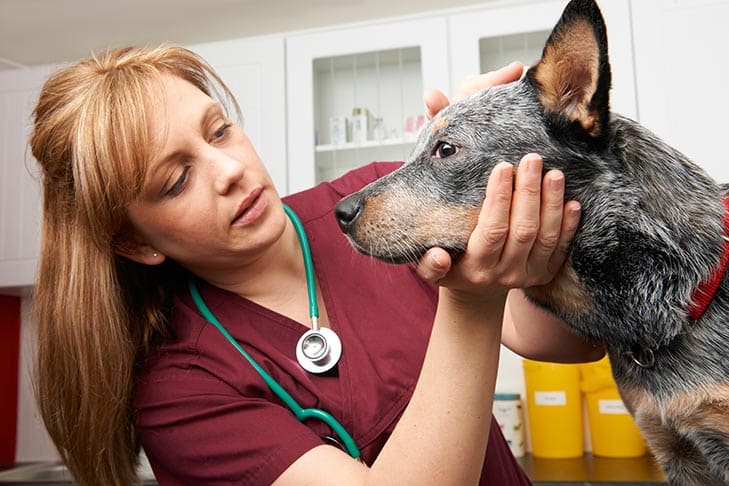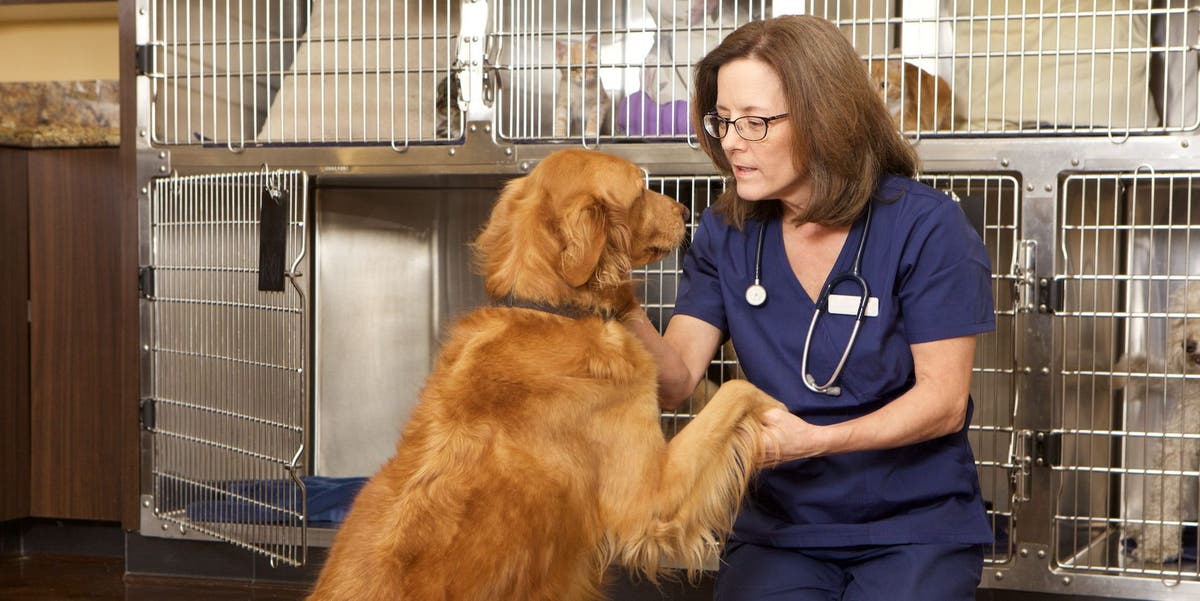How to choose the best cat behaviourist near me for feline anxiety
Wiki Article
Comprehending the Role of a Vet Behaviourist in Pet Training and Wellness
The function of a vet behaviourist is essential in dealing with the detailed connection in between animals and their proprietors. They integrate veterinary medicine with insights from animal actions scientific research to tackle concerns like aggressiveness and anxiousness. Unlike traditional instructors, their method concentrates on the underlying reasons of these habits. This nuanced viewpoint questions about the performance of traditional training techniques and exactly how a deeper understanding can change pet well-being. What methods do they use to attain these outcomes?What Is a Veterinary Behaviourist?
A vet behaviourist is a specialized professional who concentrates on understanding and dealing with the behavior issues of animals, especially pets. Their competence integrates veterinary medication and pet behavior science, allowing them to diagnose and deal with a vast variety of behavior troubles - veterinary behaviour. These experts commonly hold postgraduate degrees, such as a Master's or PhD in animal behavior, and are accredited by appropriate organizations, ensuring they possess a deep understanding of pet psychologyVet behaviourists examine animals via detailed monitoring and evaluation, taking into consideration aspects such as genes, environment, and training background. They establish customized habits modification strategies, which might include desensitization methods, favorable reinforcement techniques, and ecological modifications. Collaboration with pet dog owners is important, as they supply advice and support throughout the training process. Inevitably, the goal of a vet behaviourist is to enhance the wellness of the pet while promoting a harmonious connection between pet dogs and their owners.
The Relevance of Understanding Animal Behavior
Recognizing animal actions is important for both animal proprietors and specialists in the area of pet treatment, as it lays the foundation for reliable communication and training. Identifying how animals regard their atmosphere and reply to stimuli makes it possible for caretakers to create an extra unified living situation. Insight into behavior signs, such as body movement and vocalizations, fosters more powerful bonds between family pets and their proprietors. By appreciating the natural instincts and requirements of different species, people can customize their training approaches to accommodate these elements, promoting far better discovering and participation. Additionally, a strong grasp of behavior science help in identifying stress factors and prospective triggers, allowing for positive treatments. On the whole, comprehending animal actions not only boosts the health of pet dogs however also enhances the experiences of those that care for them, inevitably causing much healthier, happier partnerships.Common Behavioral Issues Resolved by Vet Behaviourists
Vet behaviourists often resolve common behavior issues in family pets, including hostility and anxiety actions. They additionally concentrate on anxiety and anxiety management, which can considerably influence an animal's wellness. Recognizing these issues is important for developing efficient training and intervention approaches.Hostility and Worry Responses
While many family pet proprietors may watch aggression and concern feedbacks as simple behavioral concerns, these complex reactions usually stem from underlying stress and anxiety or past injury. Vet behaviourists play an important function in determining the root causes of these behaviors, which can manifest in different types, consisting of growling, attacking, or excessive fear of certain situations. Comprehending these triggers is important for establishing reliable training approaches tailored per animal's special circumstances. Behaviourists employ methods such as desensitization and counter-conditioning to aid pet dogs handle their worries and hostility. Additionally, they enlighten animal owners concerning proper monitoring methods, emphasizing the value of patience and uniformity. Dealing with aggressiveness and fear responses not just boosts the family pet's high quality of life however additionally reinforces the bond between animal and owner.Anxiousness and Tension Monitoring
Anxiety and tension prevail concerns that several family pets encounter, usually resulting from modifications in their environment, absence of socialization, or previous adverse experiences. Vet behaviourists play a vital function in determining the underlying sources of these concerns. They utilize various strategies, consisting of behavioral modification, desensitization, and counter-conditioning, to aid animals take care of stress and anxiety. Additionally, they might recommend ecological adjustments, such as producing safe spaces or providing enrichment activities that advertise leisure. Partnership with pet dog proprietors is essential, as behaviourists direct them in comprehending their pet dog's signals and executing reliable coping techniques. By attending to anxiety and stress and anxiety, veterinary behaviourists add greatly to enhancing the overall health and lifestyle for family pets and their families.Exactly How Vet Behaviourists Differ From Standard Trainers
Veterinary behaviourists differ from typical trainers primarily in their academic histories and training. While read conventional instructors typically concentrate on obedience and fundamental commands, veterinary behaviourists stress understanding and attending to underlying behavioral issues, including medical considerations right into their approach. This distinct focus enables them to give a more thorough treatment for animals with complicated behavior obstacles.Education And Learning and Training Distinctions
Understanding the distinction in between vet behaviourists and typical instructors is essential for animal owners looking for efficient training options. Vet behaviourists have innovative levels in vet medication, usually adhered to by specialized training in pet behaviour. This education equips them to address site complex behavioral concerns that might originate from clinical conditions or psychological factors. In contrast, typical instructors normally have qualifications from training programs that concentrate on obedience and standard commands without diving right into the underlying emotional or clinical aspects. While both professionals intend to improve animal practices, veterinary behaviourists can identify and treat behavioral issues holistically, incorporating medical understanding into training approaches. This critical distinction highlights the value of choosing the appropriate expert based on the animal's specific demands.Emphasis on Behavioral Issues
Dealing with behavioral concerns needs a nuanced method that identifies veterinary behaviourists from traditional instructors. While typical fitness instructors frequently concentrate on obedience and basic commands, vet behaviourists explore much deeper into the underlying root causes of problematic practices. They utilize a considerable understanding of animal psychology and therapy strategies, which are rooted in scientific research. This proficiency enables them to recognize issues originating from stress and anxiety, concern, or aggression, as opposed to merely attending helpful site to surface-level signs. On top of that, vet behaviourists assess the animal's total well-being, thinking about environmental variables and the pet's history. By integrating clinical knowledge with behavioural approaches, they provide tailored solutions that advertise long-term behavioural change, guaranteeing both the animal's and owner's lifestyle are considerably improved.Clinical Factors To Consider Consisted Of
While typical trainers might overlook underlying medical concerns, vet behaviourists prioritize a thorough evaluation of a pet's health as a fundamental action in dealing with behavioural problems. This method enables them to recognize possible clinical problems that might add to unwanted behaviors, such as anxiety, pain, or neurological disorders. By integrating clinical evaluations into their technique, vet behaviourists can team up with vets to assure a holistic understanding of the pet dog's wellness. Additionally, they can advise suitable treatments or changes to training strategies based on medical searchings for. This substantial viewpoint distinguishes vet behaviourists from traditional fitness instructors, as they resolve both behavioral and health-related variables, inevitably causing more reliable and lasting results for pets and their owners.
The Process of Collaborating With a Veterinary Behaviourist
Teaming up with a veterinary behaviourist includes a systematic method to attending to a pet's behavior concerns. At first, the procedure begins with a considerable assessment, where the behaviourist gathers thorough information regarding the family pet's history, atmosphere, and details behaviors that are troublesome. This commonly includes surveys, meetings with the pet owner, and often monitorings of the pet dog in its environment.Complying with the assessment, the vet behaviourist formulates a customized treatment strategy that might consist of behavior alteration methods, training methods, and, if essential, referrals for clinical evaluations. canine behaviourist near me. The strategy is created to be functional and attainable, making certain that it fits flawlessly into the animal owner's lifestyle
Succeeding follow-up sessions are important to keep track of progress, adjust approaches, and offer support. This joint effort not only intends to customize unwanted behaviors yet likewise to boost the general well-being of the animal, ensuring a harmonious partnership between the pet and its owner.
Enhancing Your Family pet's High quality of Life With Behavioral Support
Enhancing a family pet's lifestyle via behavioral assistance is important for cultivating a healthy and meeting connection in between animals and their proprietors (board certified veterinary behaviourist). Vet behaviourists play a crucial role in determining and addressing behavior concerns that may hinder an animal's wellness. Through tailored methods, they assist relieve anxiety, concern, and aggressiveness, ultimately advertising a much more well balanced and satisfied animalBehavior assistance incorporates different strategies, including positive support, ecological enrichment, and socialization. By implementing these strategies, owners can develop a caring environment that motivates favorable behaviors. This not only enhances the animal's psychological health however likewise enhances the bond in between pet dog and proprietor.
Additionally, routine appointments with a veterinary behaviourist guarantee that any emerging behavioral worries are without delay resolved, avoiding escalation. In general, buying behavior assistance is a positive technique that substantially improves a pet dog's life, leading to improved physical and psychological wellness end results.
Regularly Asked Concerns
What Credentials Do Vet Behaviourists Have?
Veterinary behaviourists usually hold a veterinary degree, followed by specialized training in animal behavior. Several additionally possess accreditations from acknowledged organizations, demonstrating their competence in attending to animal behavior concerns and advertising general animal health.Can Vet Behaviourists Recommend Medication for Pets?


Vet behaviourists, having vet degrees and specialized training, can undoubtedly prescribe medicine for pet dogs. This capability permits them to deal with underlying behavior concerns effectively, usually combining medicinal treatment with behavioral modification techniques for finest results.
How Much Time Does Behavioral Treatment Usually Take?
Behavior modification period varies significantly, typically varying from a couple of weeks to numerous months. Variables affecting this timeline consist of the pet's details problems, uniformity of training, and the proprietor's interaction at the same time.Are Remote Assessments Offered With Veterinary Behaviourists?

Just how Much Does a Veterinary Behaviourist Assessment Cost?
The expense of a veterinary behaviourist appointment normally ranges from $100 to $300, depending on variables such as place, experience, and session length. Added charges might look for follow-up examinations or specialized services.Report this wiki page